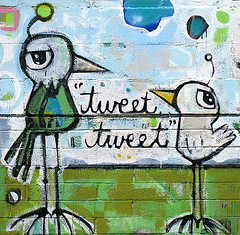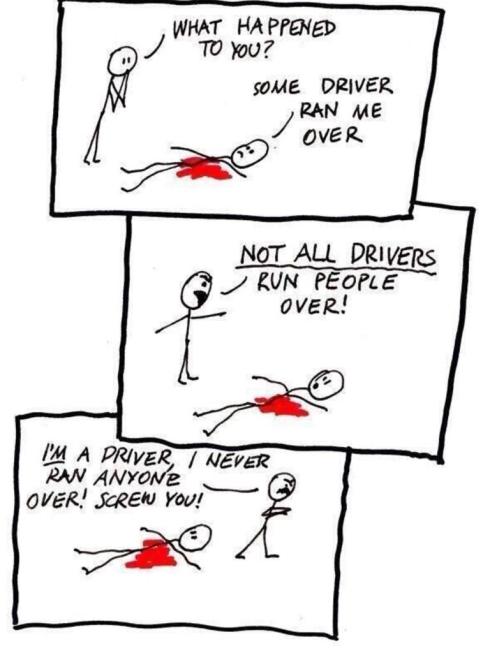
How’s your day been? That’s a question you’ve probably asked many times, and been asked a fair few too. It’s part of the normal everyday engagement between people that oils the social wheels. Often it’s not a genuine enquiry in the sense that a detailed response is not expected: instead, it’s a baton being passed, with you expected to pass it back and say, “Fine thanks. How about you?” That “fine” can mask a lot of days that aren’t fine, whether better or worse, but we’re all expected to join in the general cheerleading, pretending to be “fine” too.
For people struggling with mental health problems or managing a long-term mental health condition, how our day has been is probably a bit of a mystery to the general public. This can be a source of assumptions, stereotypes and prejudice, whether that’s the “lazy faker” of depression who just needs to take themselves in hand and go for a brisk walk; or the “dangerous maniac” of schizophrenia who should be monitored and contained for public safety. These prejudices and stereotypes can feed into self-stigma that brings about a sense of isolation.
Our daily lives are also likely to be a bit of a mystery to the professionals who provide our care, whether that’s a therapist an hour a week, 20 minutes with a psychiatrist every 3 months or 10 minutes with a GP every few weeks. What it’s actually like to live with a mental health problem can be pretty uncharted territory unless you’re doing it yourself or living with someone who is. There’s so much more to good mental health, and to good mental health services and support, than the NHS, drugs and talking treatments. People just like me are out there, living our lives, quietly getting on with things day to day, and there’s a new project that aims to capture that reality. It’s called A Day in the Life.
A Day in the Life (the mental health project, not the Beatles song) asks people with mental health problems to share what their day has been like – and what has helped or made the day worse – on four set days over a year.
The project aims to shine a light on the everyday lives of people with mental health problems to raise awareness and to help the general public better gain a better understanding: to challenge myths and bust some stigma. It also aims to get people who may never have blogged before writing about how their day went – and perhaps then finding an online voice they never knew they had. There’s guidance on how beginner bloggers can start writing.
But another objective – and the reason the project is funded by Public Health England – is to help policy-makers understand what makes a difference – good or bad – to the lives of people with mental health problems. Although not a scientific study, the project will provide an insight to help influence policy decisions on services provided in future. The online snapshot diaries will also help to highlight emerging themes and suggest future areas for investigation.
I’ve signed up to take part in the project and have already posted my entry for the first day, Friday 7th November. The remaining three days will be in winter, spring and summer 2015.
Follow the project on twitter using hashtag #DayInTheLifeMH and scroll down to find out more about the project and how you can take part.
.
Below is my entry for 7th November, which will appear on the Day in the Life website when everyone’s contributions so far – totalling around 370 – go live on Monday 17th.
Please note: I chose to speak very candidly about what I experienced that day, so please read with care if you’ve been affected by suicide, suicidal thoughts or depression – or simply scroll down to the bottom where you’ll find useful links.
.

.
I’m on Twitter – a lot! So, as usual, after turning off my alarm, the first thing I did this morning was to check what tweeps I follow had posted, to catch up on news in the mental health world. Then, returning to bed with breakfast and my pet, as it was the last day to sign up to #ADayintheLifeMH, I sent out a series of tweets to encourage as many people as possible to sign up. The more sign-ups, the more varied a picture of living with mental health problems it will provide.
Next, I checked what had been happening on the #SamaritansRadar hashtag. Samaritans Radar was launched by the Samaritans in October and, ironically, had had a disastrous impact on the Twitter mental health community. Numerous tweeps had contacted the Samaritans by Twitter, email, phone and letter to beg them to take the secret automated surveillance and alert app offline. Experts in various different professions had written about legal and ethical concerns. Mental health experts by experience had blogged about their pain and distress. There was an online petition, an investigation by the Information Commission and even a group proposing legal action against the Samaritans. I was involved in the campaign to have the app taken offline till it could be made safe.
On checking Twitter, it was clear that the outcry was continuing. And the Samaritans had tweeted their followers about A Day in The Life Mental Health!
Next, I tried to work on a blog post about the app. The powerful psychiatric medications I take have an impact on motivation, focus and concentration and, since I’d started taking them, I couldn’t quite connect the dots. It was cripplingly frustrating and is one reason I spend so much time on Twitter: 140 characters just about matches my attention span! Being sedated so your higher functions no longer work properly makes it hard to manage a home and get everyday tasks done, let alone get anywhere near organising your own healthcare in a system that relies on people being pushy. Being a sedated blob doesn’t get you very far and is one reason I haven’t been able to get proper treatment for myself over 3 years since I was discharged from hospital. Here I am, still parked on welfare benefits.
I struggled for a while to try to gather together my thoughts on Radar down on paper, but was unable to do so. I tried to make an overdue phone call, but couldn’t. So I had lunch, then caught the bus to a medical appointment.
Later, as I walked back through a tree-lined park on a beautiful autumn afternoon listening to the radio, I heard a trailer for this evening’s BBC Radio 4 Any Questions saying that one of the topics the panel would discuss was the Assisted Dying Bill. This caused my own “suicide radar” to go off.
Ever since getting notice of eviction from my home so my landlord could sell it (2 months’ notice, out of the blue, after over a decade), I’d been tipped into a deep, debilitating depression. At times, I was utterly tortured by suicidal thoughts. My home had been my security and stability and now I was losing that. And the awful Radar app had thrown a spotlight on suicide, meaning my Twitter feed was full of intellectual suicide talk.
Suicide was being discussed as a fascinating concept, rather than what it was to me and many other mental health folks using twitter: a very real mental pain we were struggling with at that very moment. At times, it seems as if there’s a part of my mind monitoring everything just in case it might be useful in some way in despatching myself – my own “suicide radar”. That’s why the Assisted Suicide Bill caught my attention. Being able to die with dignity alongside friends and family – rather than experience years of unalleviated suffering or go for a secret and uncertain DIY method – was an option I’d like to have available too.
I’ve had thoughts about suicide in all sorts of places, with all sorts of people and whilst doing all sorts of things. Sometimes I’ll be plagued by all-consuming thoughts of suicide; other times they’d be a background hum, like a reflex response to every turn of events, a mental tic; and sometimes, as today, there’d be calm planning. These thoughts were going through my mind as I walked through the warm autumn afternoon, kicking up piles of fallen leaves. No-one looking at me would have known.
Back home, I checked Twitter again. At 6pm, the Samaritans tweeted to say that, after 10 days of uproar, the Radar app had been suspended! It was a begrudging statement which did not acknowledge the distress the app had caused, and the so-called apology was an example of how not to apologise. But, nevertheless, the announcement meant that mental health folks could sleep easier in their beds over the weekend. I continue to feel uneasy as to what “suspension” means in practice. Whilst no-one doubts the app was developed with good intensions, the way it was imposed on everyone had damaged trust in the Samaritans.
I spent the evening debating with people on Twitter about Samaritans Radar, listening to Any Questions, then retiring to bed to read Everyday Medical Ethics and Law. It didn’t use to be my sort of book at all, but that was before I was unlawfully arrested, sectioned, held in seclusion and treated by force. Nowadays, chapters on patient autonomy and choice and how they are glibly brushed aside for mental health patients concern me deeply.
Sadly, lack of concentration scuppered my attempts to read the book – so it was back to Twitter.
.
..
 .
.
.
.
.
.
.
Related links:
- A Day in the Life
- Mainstream media
- Background
- Here‘s what happened to me on Friday 7th November (Storify of tweets)
.
.
.
Tags: anxiety, Blogging, depression, discrimination, medication, Mental health, myths, NHS, prejudice, schizophrenia, stigma, Twitter




















